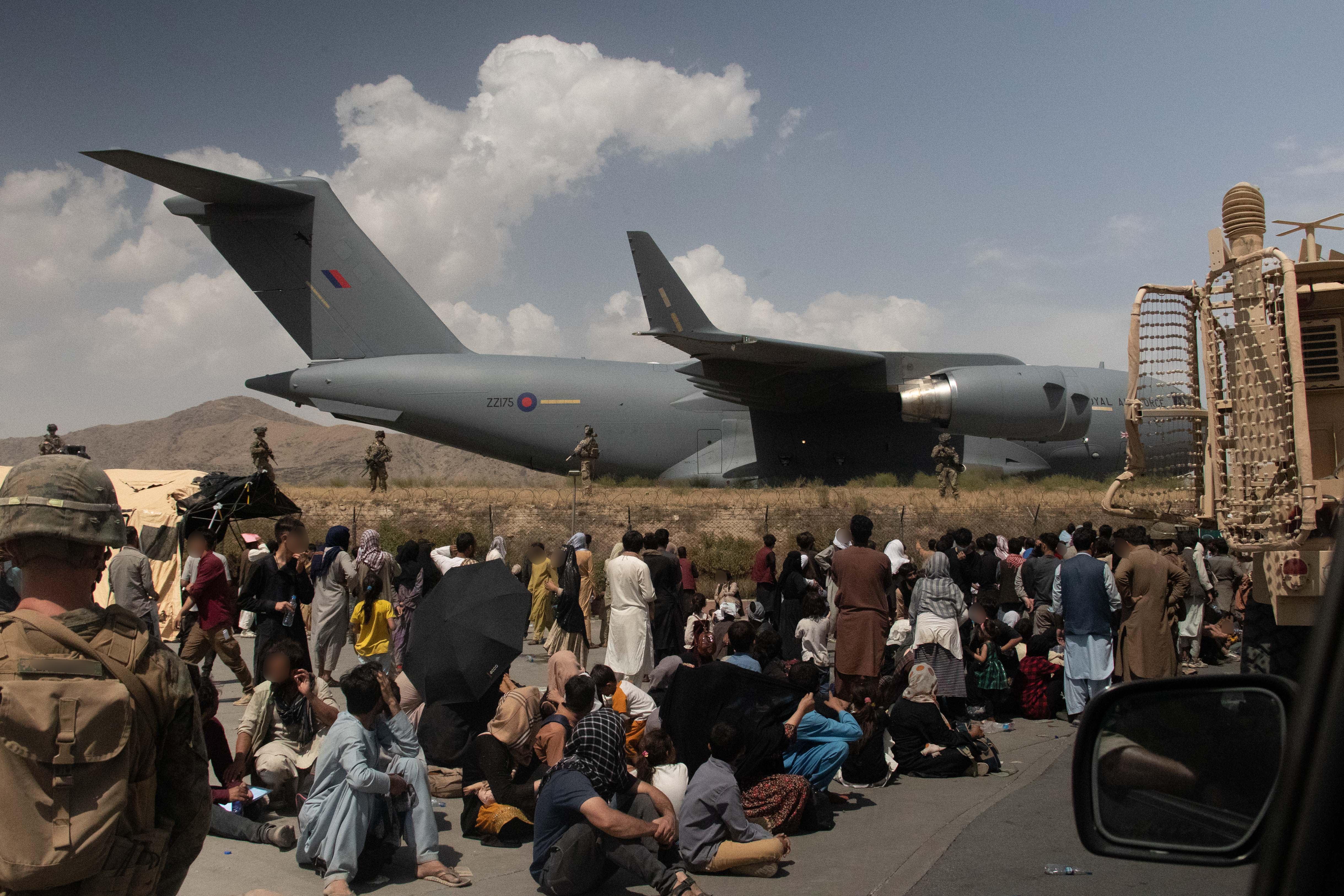‘How much longer?’ asks Afghan refugee in hotel with pregnant wife and toddler
Around 9,500 refugees from Afghanistan are still living in hotels, one year on from the Taliban seizing power on August 15 last year.

Your support helps us to tell the story
From reproductive rights to climate change to Big Tech, The Independent is on the ground when the story is developing. Whether it's investigating the financials of Elon Musk's pro-Trump PAC or producing our latest documentary, 'The A Word', which shines a light on the American women fighting for reproductive rights, we know how important it is to parse out the facts from the messaging.
At such a critical moment in US history, we need reporters on the ground. Your donation allows us to keep sending journalists to speak to both sides of the story.
The Independent is trusted by Americans across the entire political spectrum. And unlike many other quality news outlets, we choose not to lock Americans out of our reporting and analysis with paywalls. We believe quality journalism should be available to everyone, paid for by those who can afford it.
Your support makes all the difference.A former British embassy guard evacuated to the UK from Afghanistan has asked how much longer he can expect to live in a hotel with his heavily pregnant wife and toddler.
Faiz Mohammad Seddeqi, 30, was brought to the UK last August with his wife and son.
He had worked as a guard with the British Embassy in Kabul for more than a year.
The family has been living in a hotel in Watford ever since with their son, now one, and have a baby due in September.
He told the PA news agency it has not been an “easy task”.
Nearly 10,000 Afghan men, women and children are still in substandard temporary hotel accommodation, living in limbo between four walls with no ability to move on with their lives and recover from the trauma they have experienced
He said: “We have (had) to wait a year, I don’t know how much longer I have to wait.”
Mr Seddeqi said he has asked for another room “many times” but “did not receive a positive answer”.
He added: “Is it possible to have a one-year-old child with a baby and two adults in a small room?”
Around 9,500 refugees are still living in hotels, one year on from the Taliban seizing power on August 15 last year.
Some 70 hotels are understood to be in use at a daily cost of £1 million.
Around 7,000 Afghanistan evacuees are said to have been moved into settled accommodation since arriving in the country.
Officials recognise that living in hotels for months is not the best situation for families and are working to move them on to settled accommodation as quickly as possible, sources said.
But it is said to be complex in terms of matching families with appropriate homes according to the size of the family, its needs and specific vulnerabilities, on top of wider, pre-existing pressures on the housing system.
Mohammad, not his real name, came to the UK in July under the Afghan Relocations and Assistance Policy (ARAP).
He is staying in a hotel in Manchester with his wife and four children ranging in age from a seven-year-old to a baby.
Aged in his 30s, he worked as an interpreter with British forces and said he was forced to hide from the Taliban.
He said he is “very happy with my children and with my wife”, who “like it so much” in England but are finding hotel life “a little bit boring”.
He said: “I need a job and a new life in the UK, I want to get a new house very soon… it’s very hard to stay for a long time in a hotel.”
Andy Hewett, head of advocacy at the Refugee Council, said the Government is “failing on their promise of a warm welcome”, with thousands of Afghans still trapped, and those who have reached the UK separated from their loved ones.
He said their dignity and rights must be upheld by being given safe accommodation and the Government must ensure they do not face another year in hotels.
He said: “Nearly 10,000 Afghan men, women and children are still in substandard temporary hotel accommodation, living in limbo between four walls with no ability to move on with their lives and recover from the trauma they have experienced.”
A Home Office spokeswoman said: “While hotels do not provide a long-term solution, they do offer safe, secure and clean accommodation.
“We will continue to bring down the number of people in bridging hotels, moving people into more sustainable accommodation as quickly as possible.”